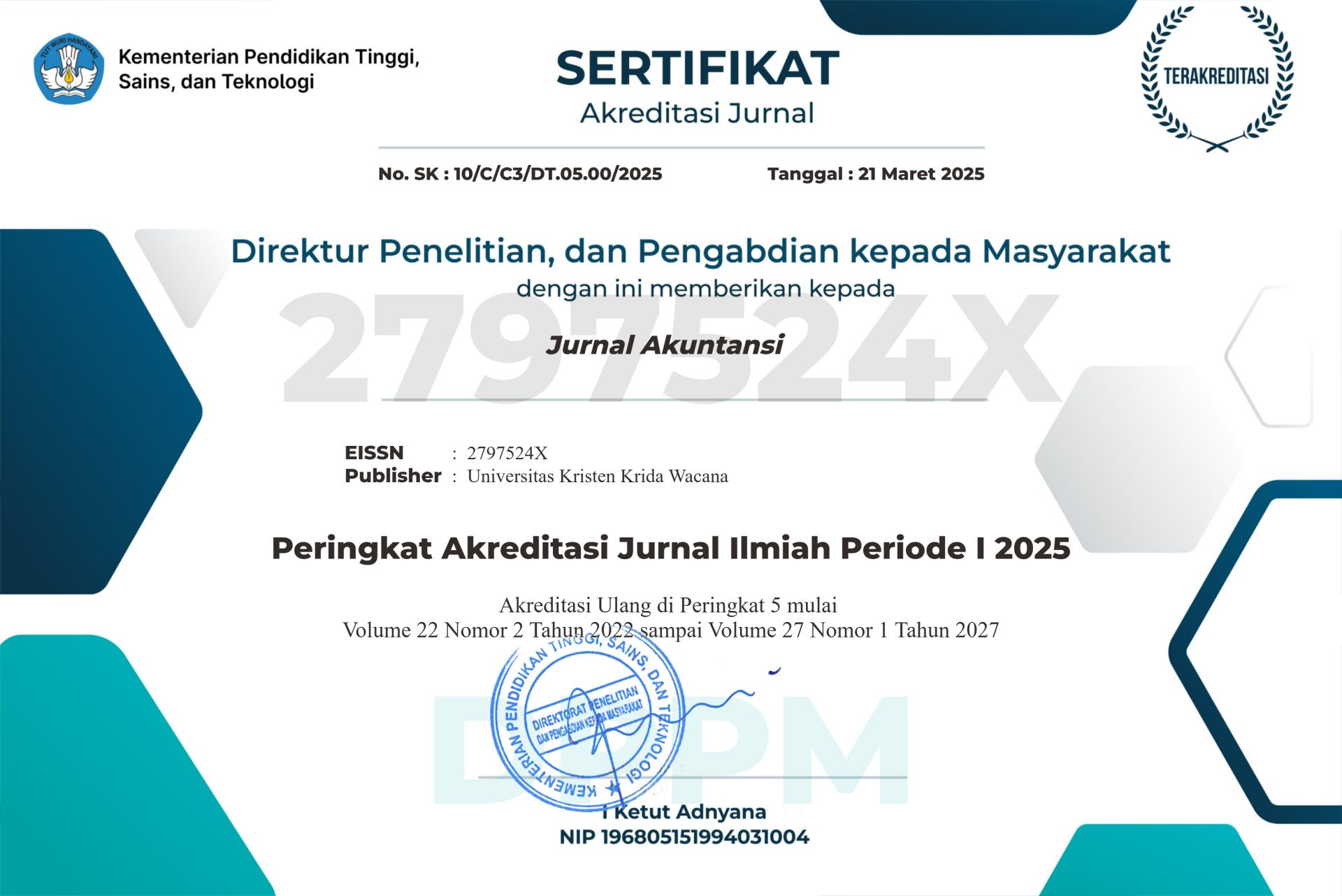PENGARUH PAJAK TERHADAP HUTANG PADA SEKTOR PROPERTI DAN REAL ESTATE DI INDONESIA
DOI:
https://doi.org/10.36452/akunukd.v20i2.1974Abstract
This research was conducted to examine the effect of tax aggression and sales on financial leverage. The sample used in this study is property and real estate companies listed on the Indonesia Stock Exchange (IDX) for the 2014-2018 period. Sampling can be analyzed by purposive sampling to obtain 35 property and real estate companies that can be taken. The dependent variable is the financial leverage received using debt. Tax aggression and sales as an independent variable using taxes expense and sales. Whereas net income, market book ratio, and firm size are the control variables of net income, stock price, total shares, total equity, and firm size. Panel data regression methods, and individual tests (t-test) were used in this study. The results showed that sales, net income, market to book ratio and firm size had significant to financial leverage. While the tax aggression does not affect financial leverage. The implication of this research is for financial managers to be able to increase sales, net profits, internal fund and total company assets. Further researchers should use the other variables to measure the financial leverage such as free cash flow. The novelty in this research is to use effective tax rates to measure tax aggression where in previous research using scale by total assets to measure tax aggression.
Keywords: financial leverage; firm size; market to book ratio; net income; sales; tax aggresion






